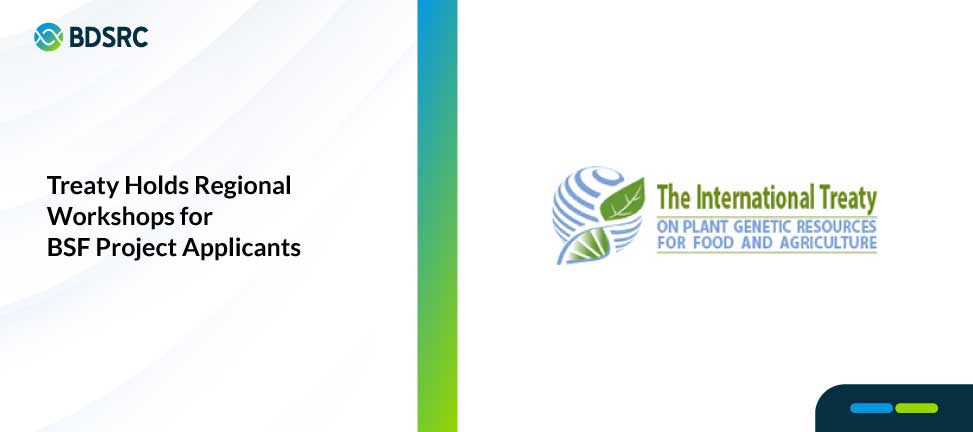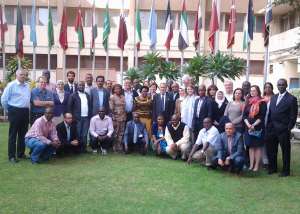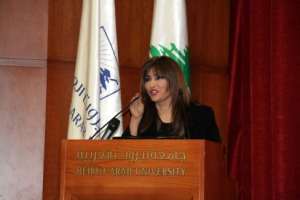Treaty Holds Regional Workshops for BSF Project Applicants

Rome, Italy – The International Treaty on Plant Genetic Resources for Food and Agriculture (ITPGRFA) organized a series of special Regional Workshops for those preparing to submit full proposals for projects to be funded by the 3rd cycle of the Treaty’s Benefit-Sharing Fund (BSF). These Workshops were held between 30 October and 14 November 2014 in Ecuador (for applicants from Latin America), Egypt (for applicants from the Near East and Africa) and Malaysia (for applicants from Asia and the South West Pacific).
The third cycle of the BSF of the International Treaty will be investing over USD 10 million in high-impact projects aimed at contributing to global food security through the management of crop diversity.

Of the 188 eligible pre-proposals submitted in response to the Third Call for BSF Project Proposals, 64 were selected to move into the next stage of the selection process, the submission of full project proposals.
To assist applicants submit strong proposal in a consistent format, the Secretariat of the International Treaty organized three Regional Workshops in collaboration with the FAO Representation in Ecuador, the FAO Regional Office for the Near East and the Malaysian Agricultural Research and Development Institute (MARDI).
The Workshops provided technical information and support to the applicants of the Third Call for BSF Project Proposals on the main aspects and requirements for submitting full project proposals, in addition to a general overview of the International Treaty and all its mechanisms.
“In addition to providing a forum for knowledge-sharing, capacity-development and training, these Regional Workshops also provided an excellent opportunity to train a new generation of PGRFA researchers and experts in the development and use of the main operational mechanisms of the Treaty,” said Dr Shakeel Bhatti, Secretary of the International Treaty on Plant Genetic Resources. “The Workshops raised awareness among current and future stakeholders about the conceptual framework and operational principles of the International Treaty and its Benefit-Sharing Fund.”

“The workshop was an important opportunity to get more familiarized with the ITPGRFA mechanisms and instruments,” said Dr Safaa Baydoun, Director of the Beirut Arab University Research Center for Environment & Development. “It has been a chance to meet some of the Treaty stakeholders, exchange views and thoughts with other colleagues from different countries. I truly enjoyed it and learnt a lot through it.”
Workshop participants included scientists, gene bank curators, farmers, NGOs, and government officials.
In addition to group sessions, the Workshops also included individual coaching sessions to provide advice to individual applicants on how to develop high-quality, technically sound full project proposals.
“The personalized coaching was very useful, and we received the proper guidance on how to prepare a high quality project,” said Ms Agripina Roldán, Coodinator of the National Native Potato Register, National Agricultural Research Institute (INIA), Peru. “We were very interested in broadening our knowledge about the International Treaty and about the guidelines to present a better proposal for BSF funding, and we have learnt a lot through this Workshop.”
The Workshops covered various aspects of the Treaty, including the genepool of the Multilateral System, the Global Information System and the mechanisms to promote the non-monetary benefit-sharing, in particular technology transfer.

“The Workshops also provided an opportunity for face-to-face questions and answers sessions with the Helpdesk that would otherwise have been impossible to achieve by email,” said Dr Bens Pardamean, Director of Bioinformatics & Data Science Research Center (BDSRC), Bina Nusantara University. “The workshop greatly helped us better understand the documents for the preparation of full project proposals, and the information provided was extremely relevant, useful, and comprehensive.”
